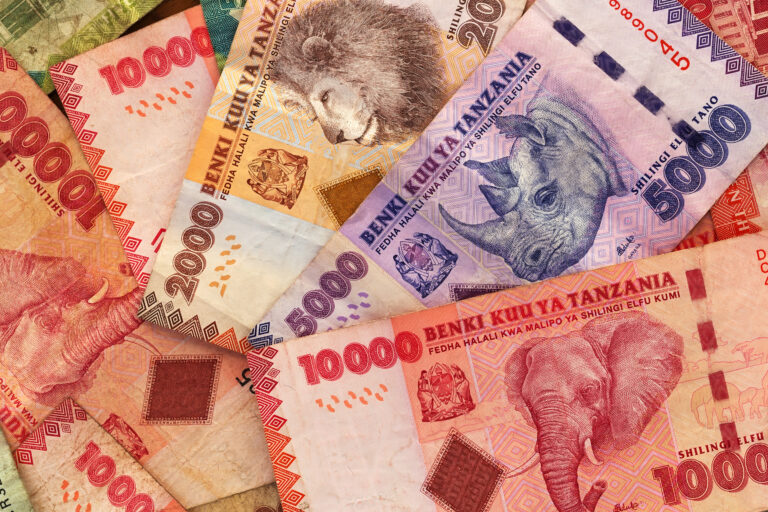When it comes to international finance and currency, the Tanzanian Shilling (TZS) is a fascinating subject. Rich in history and essential to East Africa’s economic landscape, the TZS plays a pivotal role not just for locals within Tanzania but also for global travelers, investors, and businesses looking to transact in this part of the world.
This blog dives into the origins, uses, and current importance of the Tanzanian Shilling, offering clear insights for individuals and businesses alike interested in understanding this currency.
What is the Tanzanian Shilling?
The Tanzanian Shilling (symbol TSh or code TZS) is the official currency of Tanzania, an East African nation known for its incredible wildlife, Mount Kilimanjaro, and Zanzibar’s stunning beaches. The shilling serves as the primary medium of exchange within the country and is subdivided into 100 cents.
Introduced in 1966, the Tanzanian Shilling replaced the East African Shilling, the currency that was previously shared among Kenya, Uganda, Tanganyika (mainland Tanzania), and Zanzibar. Today, the TZS operates as a fiat currency and is regulated by the Bank of Tanzania, the nation’s central authority.
Why Understanding the Tanzanian Shilling Matters
1. For Travelers
Tanzania is a popular destination among tourists seeking adventure, natural wonders, and cultural experiences. Understanding the Tanzanian Shilling is crucial for budgeting and navigating local markets, ensuring fair exchanges, and avoiding unnecessary fees.
2. For International Businesses
Tanzania is a member of the East African Community (EAC), making it an important hub for trade and investment in the region. If you’re conducting business in Tanzania, the shilling is integral to local transactions and foreign exchange markets.
3. For Remittances
For Tanzanians living and working abroad, sending money back home is an emotional connection and an economic necessity. Familiarity with the Tanzanian Shilling helps both senders and recipients make smarter decisions about money transfers and exchange rates.
Key Features of the Tanzanian Shilling
- Banknotes and Coins
Tanzanian Shilling denominations come in both coins and banknotes:
-
- Coins: Available in TSh 50, 100, 200, 500
- Banknotes: Available in TSh 1,000, 2,000, 5,000, and 10,000
Coins are more frequently used for small, everyday purchases, such as produce at local markets, while higher-denomination banknotes dominate larger transactions.
- Exchange Rate
The Tanzanian Shilling operates as a free-floating currency, meaning its value is determined by supply and demand in global foreign exchange markets. The Tanzanian Shilling often trades at competitive exchange rates, especially against major currencies such as the US Dollar (USD), Euro (EUR), and British Pound (GBP).
Businesses and individuals transacting in Tanzania commonly use USD as well, especially in larger-scale transactions like hotel bookings, safaris, and investments.
- Symbolism on Banknotes
The design of Tanzanian currency is deeply rooted in national pride. The bills feature famous landmarks, wildlife, and Tanzanian leaders, reflecting the nation’s heritage and culture.
Key Applications of the Tanzanian Shilling
1. Everyday Transactions
For local Tanzanians, the TZS is used for everything—from purchasing food at markets to paying utility bills. It’s the backbone of the daily economy.
2. Trade
Tanzania’s economy largely relies on agriculture (coffee, tea, and cashews), mining (gold, tanzanite), and tourism. Many of these industries operate using the Tanzanian Shilling.
3. Cross-Border Payments
While the TZS is primarily used domestically, cross-border payments (especially in East Africa) are facilitated using the shilling alongside widely accepted international currencies.
Challenges and Strengths of the Tanzanian Shilling
Challenges
- Inflation
Like many currencies in developing nations, the TZS sometimes experiences inflation. This may affect its purchasing power and stability in foreign exchange markets.
- Limited International Use
The Tanzanian Shilling is not widely accepted outside Tanzania, which makes currency exchange a necessity for travelers and businesses operating internationally.
Strengths
- Stability in the Region
Despite inflation challenges, the Tanzanian Shilling has built a relatively stable track record within Tanzania when compared to some neighboring currencies.
- Government Oversight
The Bank of Tanzania actively monitors and adjusts monetary policy to maintain the currency’s stability and manage inflation.
How to Exchange Tanzanian Shillings
Tips for Travelers:
- Where to Exchange
The best places to exchange money include authorized Forex Bureaus, banks, and hotels. Avoid exchanging money on the street, as this can lead to scams or counterfeit currency.
- Monitoring Exchange Rates
Keep an eye on live exchange rates to ensure you’re getting a fair deal. Rates can vary significantly between financial institutions, especially when converting to or from the US Dollar.
- Using ATMs
ATMs in major cities and tourist hotspots often accept international cards. Just be sure to notify your bank ahead of time to avoid any hiccups.
FAQ Section
How stable is the Tanzanian Shilling?
The Tanzanian Shilling is relatively stable within East Africa but may experience fluctuations due to inflation or global economic conditions.
What is the best way to send money to Tanzania?
Using digital remittance services like Remitly is often the easiest, fastest, and most cost-effective way to send money to Tanzania.
Can US Dollars be used in Tanzania?
Yes, US Dollars are widely accepted in Tanzania, particularly for tourist-related expenses. However, local Shillings are preferred for smaller, everyday transactions.
Are Tanzanian Shillings available outside Tanzania?
TZS is rarely available outside the country. It’s recommended to exchange your money upon arrival in Tanzania.

